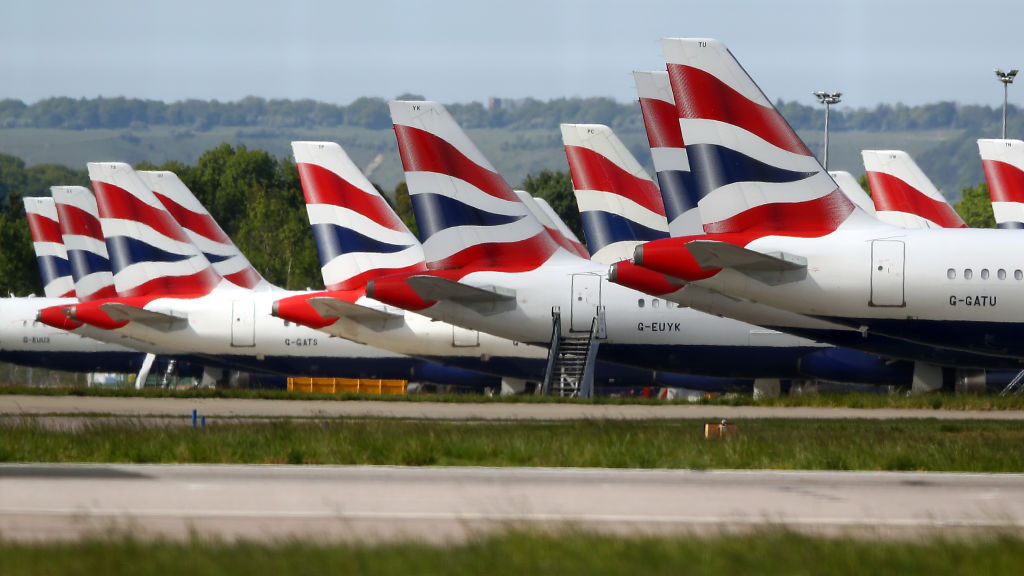The world’s favourite airline? It’s certainly not British Airways anymore

British Airways is getting its comms wrong. Banning pilots and hostesses from posting on social media while they work shows the airline prioritises money over its employees, writes Eliot Wilson
Next year British Airways will celebrate its golden anniversary. Fifty years! You get less for murder. The company’s lineage goes back much further than that, to the earliest days of air passenger travel, and BA’s marketing department chose to mark its centenary in 2019. But the facts do not lie: it was in March 1974 that the government created the British Airways Board to manage its two nationalised airlines, British Overseas Airways Corporation (BOAC) and British European Airways (BEA) and two regional carriers, Cambrian Airways and Northeast Airlines.
I mention BA’s marketing department because “the world’s favourite airline” (a massive hostage to fortune, even if you can stand it up statistically) has found life challenging in recent years. Over time they have had some huge presentational successes, like its appropriation of Delibes’s The Flower Duet and its long-running animated safety video.
For every Saatchi and Saatchi triumph, however, there has been an ethnic tailfin design, a misfire cringingly remembered for Lady Thatcher’s deft use of a paper tissue and the strident declaration “We fly the British flag, not these awful things!” It was not the celebrity endorsement the airline might have hoped for.
It has been a difficult time. Last year saw a series of IT disasters which delayed or cancelled flights and left passengers stranded, airports starting to look like refugee camps with snaking queues of dejected would-be fliers and their would-be holiday impedimenta. This was supposed to be a joyful emergence from a pandemic which, in truth, the company had weathered reasonably well. Instead, BA’s problems marred hotly anticipated family holidays, and social media provided the perfect platform for unhappy customers to vent their instant and splenetic rage.
Social media is a modern reworking of the adage “Live by the sword, die by the sword” for the Very Online. Customers have access to a bully pulpit tucked just inside their coat or handbag or pocket, and there is no filter between bottled-up rage and 280 characters of accusatory thunder. There are now Twitter accounts entitled “British Airways SUCK” and “Hate British Airways”.
Some criticism is inevitable. Despite her high profile, Elizabeth Hurley’s wail of “Stranded at Antigua airport” was not a comms disaster. However, one passenger’s weary observation that “flight computers have been down for two hours worldwide and no BA plane can file a flight plan” hinted at a more profound malaise, while “Worst airline I’ve ever used. Scumbags doing this around Christmas time” was not a vote of confidence.
Now it seems the airline management has adopted an attitude of double-or-quits. Last week, BA flight crew complained that new company-wide social media guidelines had been published to restrict or forbid employees sharing certain types of content online. Essentially it seemed that BA wanted to stop pictures taken by their staff at work from appearing on Twitter, Instagram and other platforms, ostensibly as a reminder about appropriateness and safety.
This might seem innocuous enough, but some who worked for BA had built up enormous social media audiences with candid snaps of their daily lives. Dave Wallsworth, a captain with BA, has 112,000 Twitter followers and has delighted fans with photos of the aurora borealis from his cockpit and dramatic night-time cityscapes taken on approach to major airports.
BA’s unpaid Twitter ambassadors have been working hard for the company’s reputation without even considering it work. Glimpses of celebrity travellers, candid scenes of cabin crew and the wonders of nature had softened and humanised BA’s tattered image. The modern audience prizes authenticity above everything, and here was raw, unfiltered, wholly positive content, provided for free.
Like many large corporations, however, BA showed it neither understood nor trusted what it did not control. So no more photos are to be taken or posted while staff are “professionally engaged” in their duties. No more surprise vistas of Barcelona’s bright lights or a tired-but-happy Hollywood star sipping champagne. From now on, all fun must be strictly choreographed and signed off in triplicate.
It is a decree which smacks of lack of imagination and, worse, paranoia. Aspirant business leaders are told that employees are a company’s greatest asset, and the cliché can be true: if your workforce is motivated and enthusiastic, they will perform well above what is expected and required, they will do it for free and they will be your best ambassadors. BA, meanwhile, seem to be enunciating the truth revealed by the Pointy-Haired Boss of Scott Adams’s Dilbert cartoon: it turns out money is our most valuable asset. Employees came ninth.